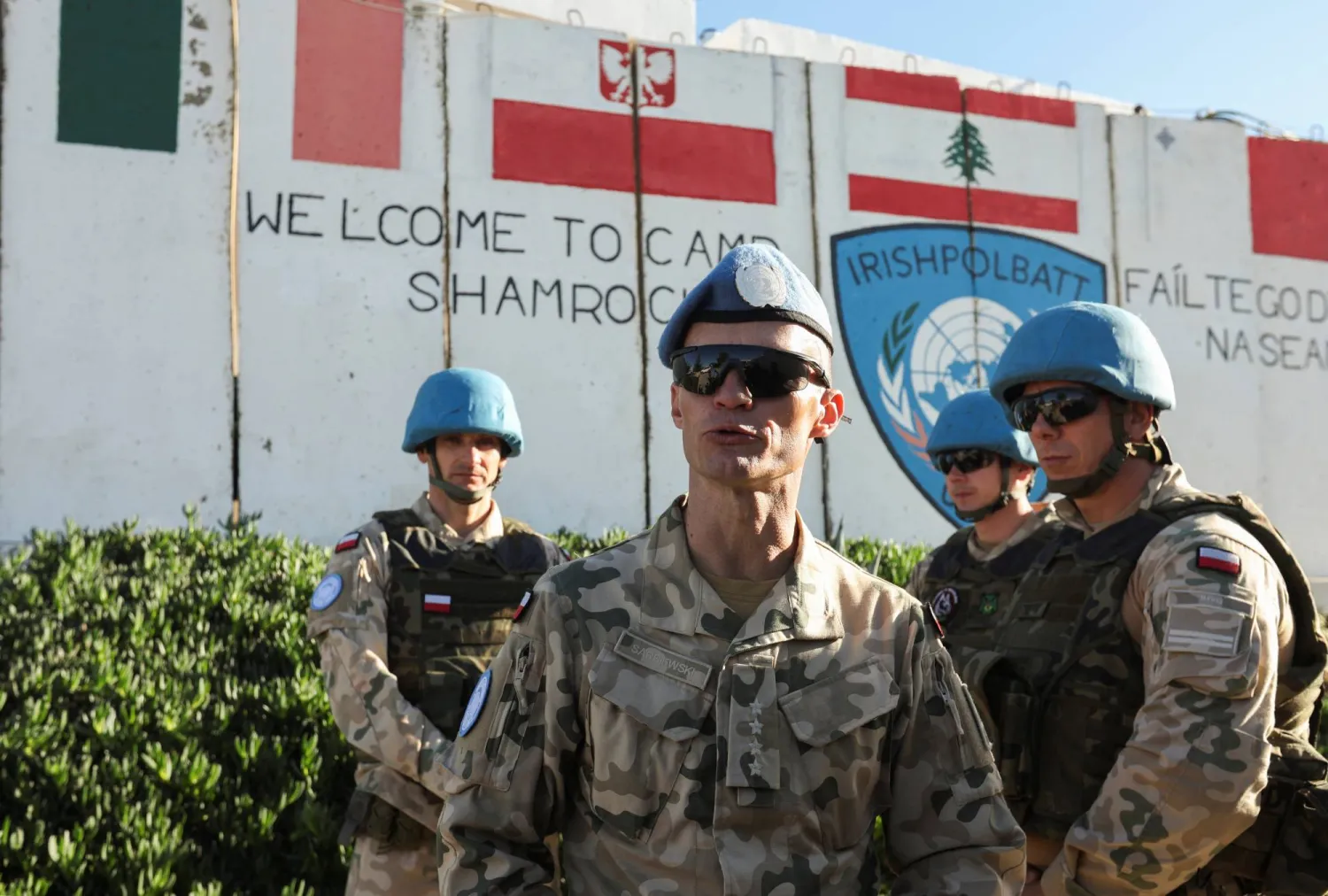The United Nations peacekeeping chief says he was very satisfied with the strong support of many countries for its far-flung operations at a recent ministerial meeting, despite “headwinds and challenges and problems.”
Jean-Pierre Lacroix, the undersecretary-general for peace operations, said in an interview with The Associated Press that the bi-annual ministerial meeting in Ghana’ s capital, Accra, earlier this month was attended by nearly 100 countries.
He said 33 countries made pledges of 117 military and police units for the UN’s peacekeeping operations – and 45 countries made over 100 pledges related to training peacekeepers and partnerships.
“We had really a strong level of support towards peacekeeping, which is great ... and the pledges were very good,” Lacroix said.
The number of UN peacekeepers and staff has fallen from over 100,000 worldwide to 70,000 as missions have ended, some more successfully than others.
There are now 12 peacekeeping operations in Africa, Asia, Europe and the Middle East and that number will drop again following demands by the leaders of Mali and Congo for UN troops to leave, complaining that the peacekeepers failed in their primary mandate to protect civilians from armed groups.
There had been concern about continuing support for UN peacekeeping with the unprecedented six-month withdrawal of nearly 13,000 peacekeepers from Mali ending this month, and a recent agreement on the phased withdrawal of the more than 14,000-strong force in Congo.
But Lacroix said there was a strong recommitment to UN peacekeeping.
During the Accra meeting, he said ministers also discussed UN efforts to address other challenges including increasing the number of women peacekeepers, safety and security for troops, misinformation and disinformation affecting peacekeeping operations and discipline, which includes ongoing instances of sexual exploitation and sexual violence by peacekeepers.
Paradoxically, he said, UN peacekeeping remains one of the most supported UN operations, but individually peacekeeping missions face problems because of divisions among the 193 member nations -- especially among the 15 members of the UN Security Council who must approve and extend the mandates for peacekeeping missions.
In the list of pledges, Lacroix said, “we probably have more than what we need."
But it’s just the beginning of a process, he stressed, because the peacekeeping department he heads must now work with countries to turn the pledges into military and police units that can be deployed, and to start training missions.
Looking ahead, Lacroix said member states and host countries have the final say on authorizing new peacekeeping operations and extending existing missions..
In the vast majority of cases, Lacroix said he believes peacekeeping operations provide “added value ... even if all peacekeeping operations are facing a much more difficult environment political and security-wise -- all of them, not only in Africa.”
As for protecting civilians which the leaders of Mali and Congo strongly criticized, Lacroix said hundreds of thousands of civilians are protected every day by UN peacekeepers. And he asked what would happen if peacekeepers were removed from Cyprus or the Golan Heights which Israel captured from Syria in the 1967 war — “and you could say the same thing about many areas in Africa” and elsewhere.
Usually, Lacroix said, the UN can manage difficulties including a degraded level of security for peacekeeping missions, host governments not fully cooperative, and fake news about peacekeepers.
But he said missions become exceedingly difficult to sustain or even untenable when on top of that you have terrorism as in Mali, which UN peacekeepers are not mandated to fight, or regional conflicts like in the Great Lakes region of Africa where its mandate only covered Congo.
As for the future of peacekeeping, Lacroix said, “First of all, we’re as strong as the unity and commitment of our member states is towards opting for multilateral solutions.”
In Mali and Sudan, where peacekeepers were also expelled, he said, “I think it reflects a world where basically, there is less appetite to sort of go along with the multilateral option.”
The ministerial meeting and Lacroix’s interview this week (Monday) took place as two major wars raged, in Ukraine following Russia’s February 2022 invasion, and in Gaza following Hamas’ surprise attacks inside Israel on Oct. 7.
When there is a cessation of hostilities in both wars, Lacroix said, under one of many scenarios there may be a need for a third-party observation mission, and he said the UN has a good network of people in many countries with those capabilities.
UN Peacekeeping Chief Welcomes Strong Support for its Far-flung Operations despite `Headwinds'

Polish peacekeepers stand together during Reuters' visit at Camp Shamrock where Irish and Polish peacekeepers of the United Nations Interim Force in Lebanon (UNIFIL) are stationed near Maroun al-Ras village close to the Lebanese-Israeli border, in southern Lebanon November 29, 2023. REUTERS/Aziz Taher

UN Peacekeeping Chief Welcomes Strong Support for its Far-flung Operations despite `Headwinds'

Polish peacekeepers stand together during Reuters' visit at Camp Shamrock where Irish and Polish peacekeepers of the United Nations Interim Force in Lebanon (UNIFIL) are stationed near Maroun al-Ras village close to the Lebanese-Israeli border, in southern Lebanon November 29, 2023. REUTERS/Aziz Taher
لم تشترك بعد
انشئ حساباً خاصاً بك لتحصل على أخبار مخصصة لك ولتتمتع بخاصية حفظ المقالات وتتلقى نشراتنا البريدية المتنوعة







